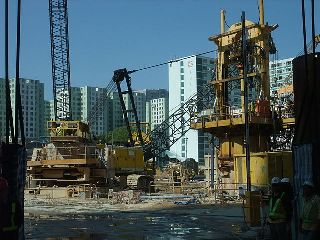 Growth in Asia’s emerging markets improved over the summer of 2014, but the region needs a stronger push for necessary reforms to sustain progress, according to a global banking group.
Growth in Asia’s emerging markets improved over the summer of 2014, but the region needs a stronger push for necessary reforms to sustain progress, according to a global banking group.
Frederic Neumann, co-head of Asian economic research at HSBC, underscored the urgency of speedy implementation of reforms, saying economic progress in the region “remains slow and uneven.”
While noting that the region’s economies are still expanding faster than in most other regions, “growth may not be quite as high as hoped,” he said.
“China’s housing sector, a big driver of growth, continues to cool. Japan’s contracting industrial production risks a technical recession. India’s bounce appears short-lived. Exports in much of the region have not yet benefited from a stronger US. Credit growth has mostly slowed.”
Nonetheless, he believes that there is continued overall broad growth in the area, thanks to ample liquidity, China’s expected growth of above 7 percent this year, the region’s ability to withstand greater volatility in global financial markets, and Asian central banks’ efforts to ease controls to preserve external stability.
“This, however, hints at a deeper dilemma. Growth cannot be driven forever by stimulus,” Neumann said. “There is, therefore, precious little time to enact the reforms required to put Asia’s economies on a more sustainable path. In fact, resorting to periodic policy accommodation or even outright support reveals a misreading of the region’s underlying challenge: Asia’s slowdown is not cyclical, it is structural.”
He added that the economies of Asia should not just wait for better times to arrive—i.e., hoping that the Western market fully recovers so that exports will rise again. “A full recovery of demand in the West, sufficient to pull Asia out of its malaise, remains a distant prospect,” he warned.
Rather, he continued, “reviving growth in Asia—whether in China, Japan, India or anywhere in between—requires deep structural reforms.”
These, he said, include pruning subsidies, spending more on quality infrastructure, boosting education, opening further to foreign direct investment, and introducing greater competition in local markets.
“These are politically tough choices to make. But they will grow more difficult, the longer they are put off,” he said.
Photo: Minghong




